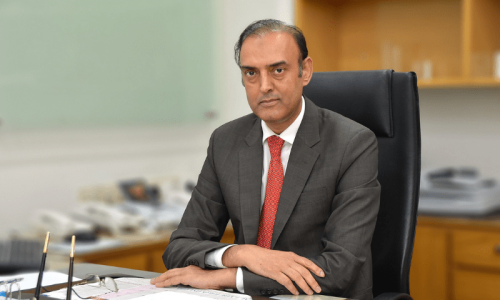KARACHI: The government adopted the buyback option for treasury bills because its financial requirement is very low, State Bank Governor Jameel Ahmed said on Wednesday.
In reply to a question after his keynote address at the 13th Bank of The Future Forum, he referred to the recent buyback auction carried out by the government. The main theme of the event was ‘The Future of Banking’.
The government recently repurchased T-bills worth Rs351 billion at a rate of 16 per cent, reflecting the liquidity available with it.
According to Jameel Ahmed, the government’s move would improve banks’ liquidity and that would in turn encourage private sector lending. He expressed confidence that the borrowing cost would come down and the economy would pick up.
State Bank’s forex reserves reach $10.7bn
He said with the help of inflows from the IMF, the State Bank’s foreign exchange reserves had reached $10.7bn — enough for two months’ imports.
The central bank chief said it was a good sign that the country’s import-related and other payment requirements were being easily met. He said pending payments and dividends had been cleared.
Technology and innovation
Jameel Ahmed said the rapid technological change had not only enabled banks to offer innovative financial services to customers but also empowered regulators to ensure compliance effectively through advanced data collection and processing capabilities.
He recalled that in 2008, the State Bank had come up with regulations for branchless banking services to enable the delivery of basic banking from retail stores.
This initiative resulted in a significant increase in the number of unique bank accounts — from 16 per cent of the adult population in 2018 to 64 per cent this year.
Within three years, Raast has processed around 850 million transactions amounting to Rs19 trillion.
With 38 million unique Raast IDs, the system processes an average of 2.5 million transactions a day.
Jameel Ahmed said the SBP was working on integrating Raast with Buna, the Arab Monetary Fund’s instant payment system, to help millions of Pakistanis living in Middle East send their remittances with ease.
“As a result of SBP’s efforts, today we have 59m branchless banking wallets, 19m mobile banking apps, 3.7m e-money wallets, and 12m internet banking users.”
Since 2020, the overall number of retail transactions processed digitally has risen by 30 per cent and the share of digital payments in total retail payments by volume has risen from 76 per cent in FY23 to 84 per cent in FY24.
The number of transactions processed using mobile and internet banking is growing at an annual rate of 70 per cent and 30 per cent, respectively, the SBP governor said.
“This is not surprising as the majority of our population is young and adept at using mobile apps.”
Published in Dawn, October 3rd, 2024













































